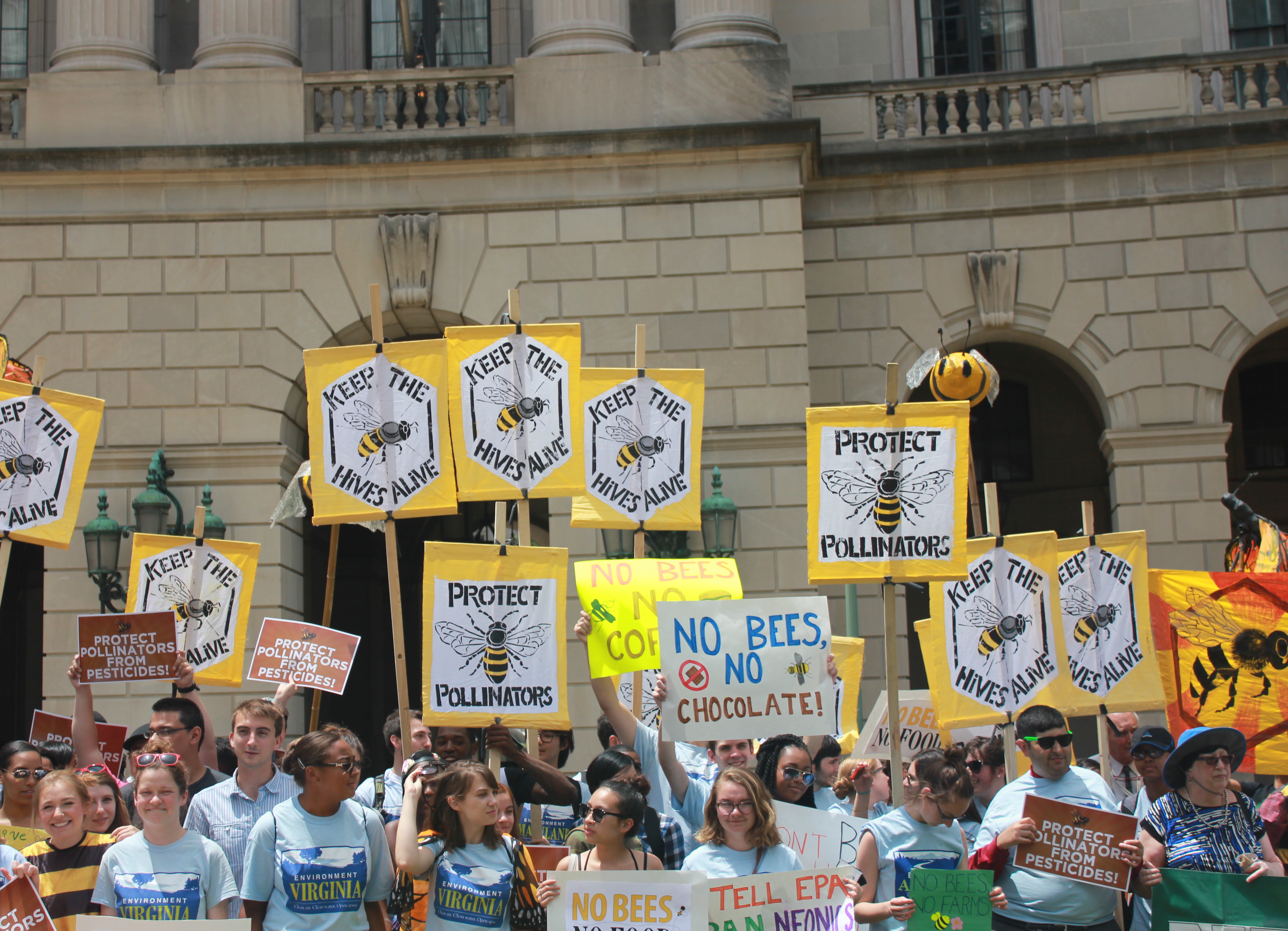Moving the garden industry away from bee-killing pesticides

Across North America, more than 700 species of bees are facing rapid decline, endangering the food we put on our tables. With so much at stake, Friends of the Earth took on the task of protecting our pollinators, working to eliminate pollinator-toxic pesticides like neonicotinoids, known as neonics, and glyphosate and to shift to organic farming systems that are healthier for bees, butterflies, people and the planet.
Thanks to Friends of the Earth, three-quarters of the garden industry has moved away from neonics, and many major retailers have committed to stop selling plants and products treated with the pesticide. Recently, Costco, True Value Hardware, and Walmart made commitments to pull these toxic pesticides from their shelves.
Pushing an industry that relies on pesticides to give up toxic neonics was not easy! Despite the vast scientific evidence, retailers only removed the pesticides from their shelves after our members took action. By signing petitions, delivering letters, making phone calls and showing up in person at retail stores to demand change, more than half million people made their voices heard, and the garden industry began to take steps to protect pollinators.
With the pressure from our members, retailers like Home Depot, Lowe’s, Costco, Walmart and True Value have pulled these bee-killing pesticides from their shelves and urged their suppliers to limit the use of the products. Our members asked for a real and lasting commitment to save the bees, and their voices were heard.
But Friends of the Earth is not done yet; while more than 110 garden retailers, nurseries and landscaping companies, including the two largest home improvement retailers in the world, have taken action, bees and other pollinators are still in danger from neonics. We need people like you to take action on this issue and help save pollinators. Top retail chains have yet to pull these products from their shelves and we need your voice to join the chorus of consumers calling for change!
